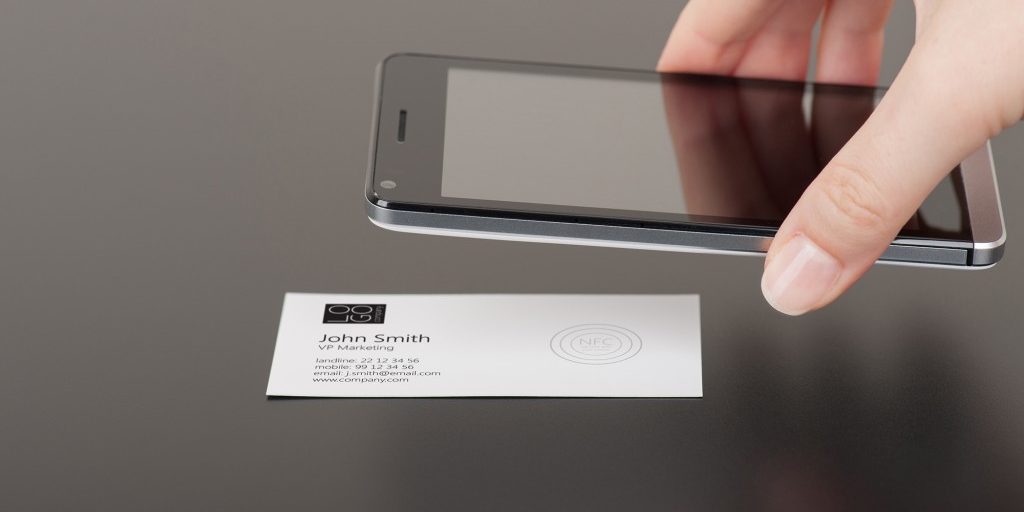Are Digital Business Cards A Good Attorney Marketing Tool?
BY Kerrie Spencer

LISTEN
The death of the paper business card is rumoured to be just around the corner. Realistically, that is unlikely, as it implies the whole world will only ever be using mobile devices. Not so. And, there is something tangible and personal about the ritual of exchanging business cards, it's still one of the best face-to-face marketing tools an attorney can use. After all, marketing these days is all about social connection, and every occasion to use something personal, and personally, is a bonus.
What about digital business cards? Can those e-business cards do right by a busy law firm and their attorneys? Are they good for marketing and outreach? The use of digital business card apps for iOS is gaining in popularity. However, there are so many of them, it's difficult to know which one is the right to choose. If you go the e-card route, you need to know what works for you personally or for your law firm. Think about how much customization you want or need and ask yourself several questions: Who do you hand your card out to? Who offers you their cards?
Digital card applications can usually be placed in one of two main categories: those which focus is creating a database of paper business cards; and those in a card format which allow an individual to share information wirelessly. (And, as these rely on a connection to the cloud, it is good practice to also have a paper business card backup.)
Some of the latest applications are designed to lift information from a card once you have taken a picture of it, then organize it digitally and/or transfer it to your phone contact list - kind of like a mobile secretary, but without the personality.
What is hot in digital business cards?
My Facecard. My Facecard lets you create a two-sided digital card using a background of your choice. You can also add a picture and choose font sizes and font colors. There are no limits and no templates, and the card is interactive, allowing someone to connect with you on LinkedIn, Twitter, Facebook, as well as via text, email or phone.
Your personality can shine through with this application. And it’s easy to share wirelessly by using the request feature to invite users on your contact list to swap cards, or you may bump phones together to trade cards.
Free.
ScanBizCards. With ScanBizCards, you can take pictures of each paper business card you collect and the optical character recognition (OCR) function kicks in, scanning to store cards to a database. If you (or the scanner) make a mistake, you may fix it manually. The information is stored in the cloud for easy access in the future. It integrates with business and social networking sites.
$6.99.
Bump is an application that acts like a paper business card. You can swap info by tapping your iPhones together; a feature which holds appeal for busy lawyers. Note: to make this work, the other party needs to also have Bump.
Free.
WorldCard Mobile lets you save paper cards in digital format. Take pictures of cards and the information is scanned and converted to a digital card. It is similar to ScanBizCards, but is not as fully featured.
$6.99.
CardFlick. CardFlick offers a basic, easy-to-use interface, with fewer design options than options like MyFacecard. Once created, cards are flicked to other CardFlick users. Finding another card user is easy – the app comes with a geolocate service. CardFlick is a good choice for conference goers, and it lets you email your card to people who do not have the application.
Free.
Feathr lets users manage contacts, take notes, manage event agendas and connect with others through social media apps. It is new on the market and was developed by two University of Florida entrepreneurs.
Free.
Icon. Icon is a cloud-based service that connects all of your websites, contact information and social networks. It is almost like an online resume, reflecting the cardholder’s personality. Icon creates a digital business card and a web-based profile page, so people can connect with you in multiple ways. It also let’s users see who has shared their cards and what they may have in common and whom they may know in common.
There are so many applications on the market that choosing one is either going to be a joy or a a little overwhelming. Consider also CardCloud, CardMunch, Evernote Hello, FullContact Card Reader or Vizibility Mobile. Since most of them have the same purpose, and similar functions, the best way to choose an application would be to determine what needs your digital card must serve, then play with a few and see what is appealing, useful and functional.
Certainly digital business cards are good for complementing paper business cards, but in this day and age when being personable, sociable and professional count when it comes to garnering clients, they should not be used exclusively.
LATEST STORIES



